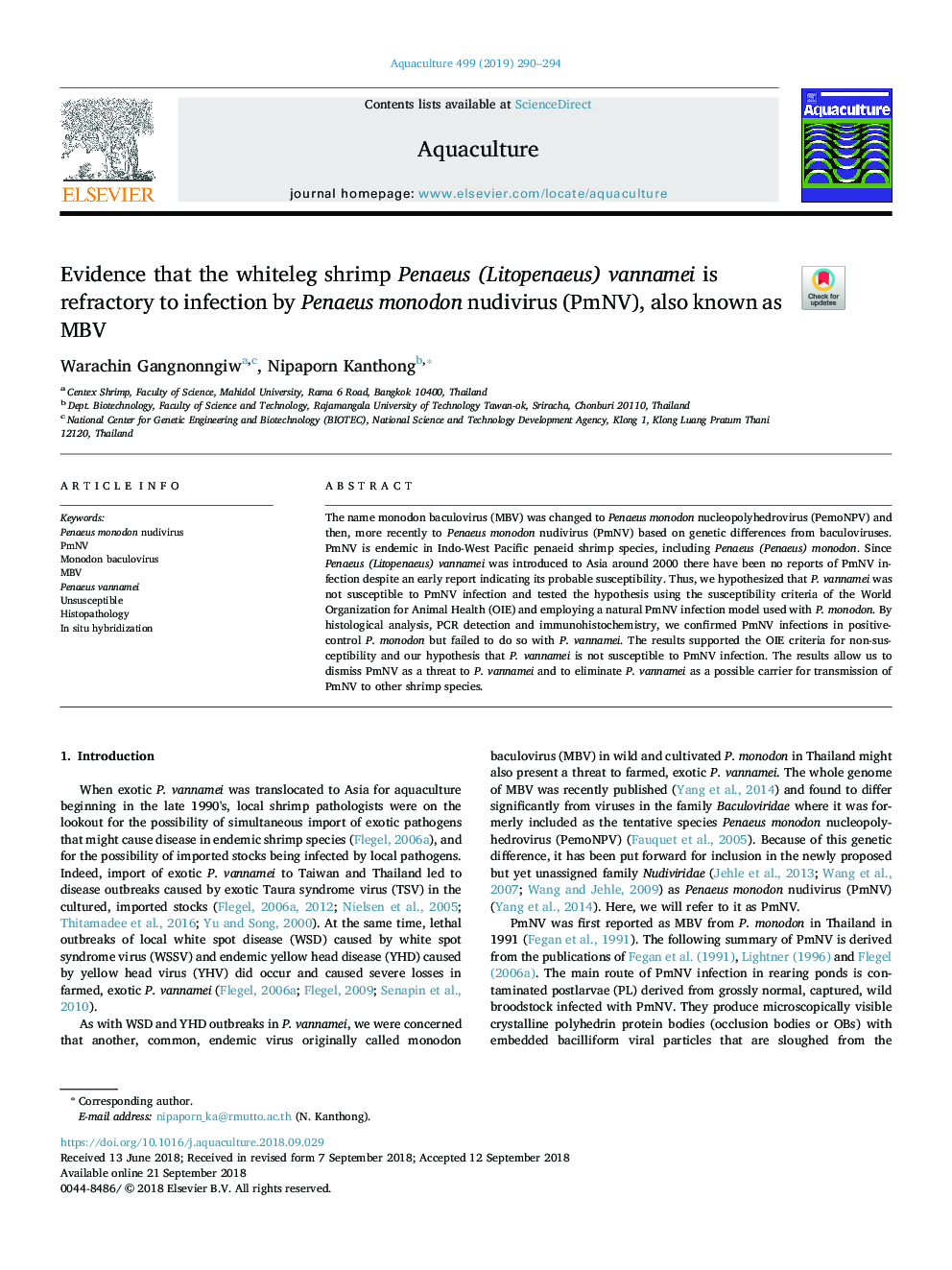| Article ID | Journal | Published Year | Pages | File Type |
|---|---|---|---|---|
| 11025860 | Aquaculture | 2019 | 5 Pages |
Abstract
The name monodon baculovirus (MBV) was changed to Penaeus monodon nucleopolyhedrovirus (PemoNPV) and then, more recently to Penaeus monodon nudivirus (PmNV) based on genetic differences from baculoviruses. PmNV is endemic in Indo-West Pacific penaeid shrimp species, including Penaeus (Penaeus) monodon. Since Penaeus (Litopenaeus) vannamei was introduced to Asia around 2000 there have been no reports of PmNV infection despite an early report indicating its probable susceptibility. Thus, we hypothesized that P. vannamei was not susceptible to PmNV infection and tested the hypothesis using the susceptibility criteria of the World Organization for Animal Health (OIE) and employing a natural PmNV infection model used with P. monodon. By histological analysis, PCR detection and immunohistochemistry, we confirmed PmNV infections in positive-control P. monodon but failed to do so with P. vannamei. The results supported the OIE criteria for non-susceptibility and our hypothesis that P. vannamei is not susceptible to PmNV infection. The results allow us to dismiss PmNV as a threat to P. vannamei and to eliminate P. vannamei as a possible carrier for transmission of PmNV to other shrimp species.
Related Topics
Life Sciences
Agricultural and Biological Sciences
Aquatic Science
Authors
Warachin Gangnonngiw, Nipaporn Kanthong,
